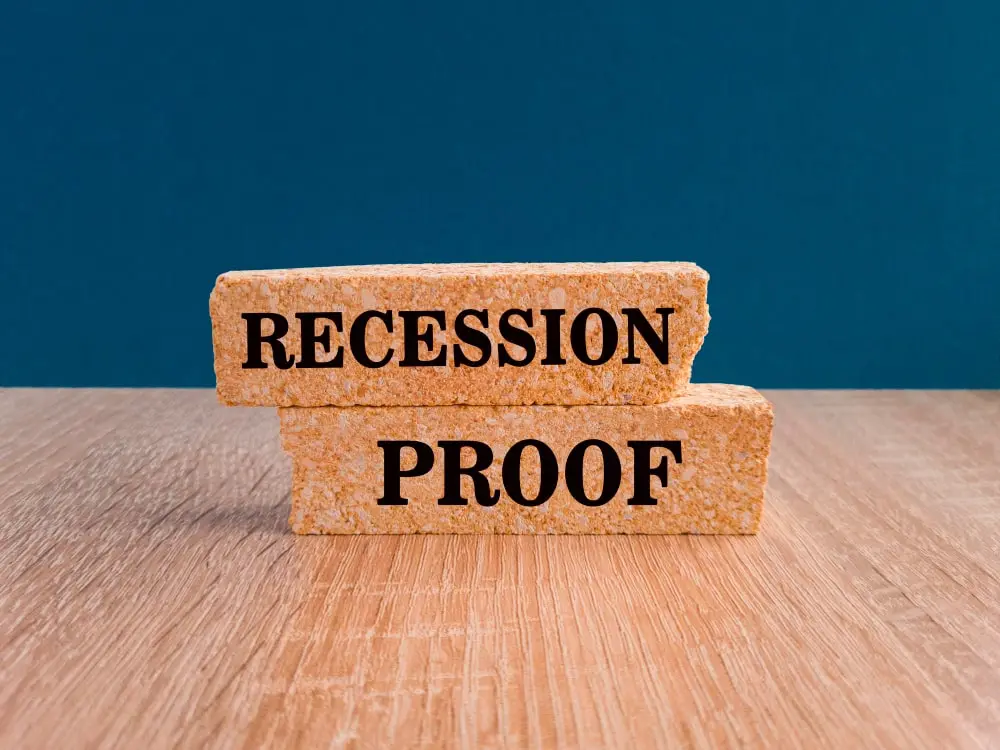Table of Contents
ToggleThe real estate market has witnessed various fluctuations, particularly during economic downturns, posing challenges for investors. Given the cyclical nature of the economy and the market, getting through real estate investments in such times can feel a bit difficult. Despite the uncertainties, real estate has shown timeless stability, from residential rentals to forward-looking asset classes. In the face of economic volatility, there are strategies to weather recessions and understand market cycles and their impact on property prices.
Over the past 40 years, the US has experienced approximately six recessions, with the current one starting in 2020. This economic downturn, constituting about a 15% contraction, has triggered shifts in the real estate market, including price relaxation and a transition from a seller’s to a buyer’s market. Employing proper strategies can make real estate investments advantageous during a recession. So, let us understand the pros and cons of both long-term and short-term real estate recession investment strategies. But before that, it is important to understand what a recession is.
What is a Recession?
A recession signifies an extended period of economic decline characterized by heightened unemployment and diminished consumer spending. Real estate investments become a source of passive income during these phases, as rental and property prices typically experience an average annual drop of approximately 5%. Despite economic challenges, the real estate market often exhibits resilience. Investors must comprehend recession-proof strategies to navigate these circumstances effectively. Contributing factors to recessions encompass deflation, inflation, excessive debts (as seen in real estate debt funds), and asset bubbles. As we can see, a recession can seem like a sudden drop that affects everything. Various factors or impacts are formed due to economic decline in the real estate market, and it hinders assured return in real estate investments. Hence, let us get a brief understanding of the impact of the recession on real estate.
Understanding the Impact of Recession on the Real Estate Market
- Job Growth: Economic upswings increase employment, especially in retail and real estate sectors. Conversely, recessions lead to job losses, diminishing demand for real estate and resulting in lower property prices.
- Rental Rates: Economic downturns result in job losses and financial hardships, reducing demand for rental properties. Vacancies increase, causing a significant decline in rental rates and property prices.
- Mortgage Rates: The Federal Reserve may lower mortgage rates during a recession to stimulate the housing market. This can enhance housing affordability and encourage investment in real estate.
- Consumer Spending: Consumer confidence and spending are pivotal during a recession. High consumer demand boosts the real estate market, but during economic downturns, lower confidence levels lead to reduced investments and a sluggish market.
Having a recession proof real estate portfolio will help investors to get through recession times with a little more ease. It is vital to plan ahead and make sure there are backups for any such situation that may strike. So let us check out the strategies for recession proof real estate investing.
Strategies for Recession Proof Real Estate Investing
Real estate investments are a great hedge against inflation. We need to maintain strategies to achieve resilient real estate investing, and these strategies are divided into Short-term Strategies and Long-term Strategies. These strategies also have their own pros and cons, which are mentioned below.
Long Term Strategies
Long-term real estate investments typically involve holding properties for extended periods (more than 5 years). These strategies are characterized by stability and passive income generation.
- Buy and Hold: Purchasing properties to rent out. This strategy offers steady rental income and potential appreciation over time.
- Real Estate Investment Trusts (REITs): Investors can get exposure to real estate without taking on property management responsibilities by making investments in REITs.
- Diversification across Markets: Investing in different geographical areas can mitigate risks associated with local economic downturns.
Pros:
- Stability: Long-term investments typically offer a more stable and predictable income stream, especially through rental properties.
- Tax Benefits: Long-term capital gains often receive more favorable tax treatment compared to short-term gains.
- Passive Income: Rental properties and certain long-term strategies provide ongoing passive income, allowing investors to build wealth over time.
Cons:
- Lower Liquidity: Long-term investments tie up capital for extended periods, limiting liquidity and the ability to quickly access funds.
- Market Changes: Economic and demographic shifts can impact long-term investments, requiring adaptability over time.
- Delayed Returns: While returns can be substantial, they often accumulate gradually over the investment’s lifespan.
Short Term Strategies
Short-term strategies often involve a quicker turnaround, usually within a year or two, and can be more responsive to market changes.
- Fix and Flip: Buying undervalued properties, renovating them, and selling for profit.
- Wholesaling: Contracting a property and then selling the contract to another investor before the deal closes.
- Short-term Rentals: Utilizing platforms like Airbnb for properties in high-demand areas, especially during tourist seasons.
Pros:
- Higher Returns: Short-term investments often yield higher returns, making them attractive for those seeking quick profits.
- Flexibility: Investors can adapt to changing market conditions and capitalize on emerging opportunities with shorter investment horizons.
- Diversification: Short-term strategies, such as fix-and-flip or P2P lending, provide diverse options for investors to spread their risk.
Cons:
- Higher Risk: Short-term investments come with increased volatility and uncertainty, leading to a higher risk of potential losses.
- Market Sensitivity: Short-term gains heavily rely on market conditions, making investors susceptible to economic fluctuations.
- Active Involvement: Strategies like fix-and-flip require hands-on involvement, making them less passive compared to some long-term options.
Choosing between short-term and long-term real estate investments depends on an investor’s risk tolerance, financial goals, and level of involvement. A diversified approach, combining elements of both strategies, may offer a balanced portfolio with varying risk and return profiles.
Conclusion
Successful real estate investments during a recession require a strategic approach. Long-term strategies offer stability and passive income but come with lower liquidity and delayed returns. Short-term strategies provide higher returns and flexibility but involve higher risks and active management.
A balanced portfolio, combining elements of both, is key to navigating economic downturns. Planning ahead, understanding market cycles, and maintaining a diversified, recession-proof real estate portfolio can turn challenges into opportunities in the ever-changing real estate industry. To make safe real estate decisions, get in touch with Munshi Capital for a customized, experienced and timely response to get started on your successful real estate road.





